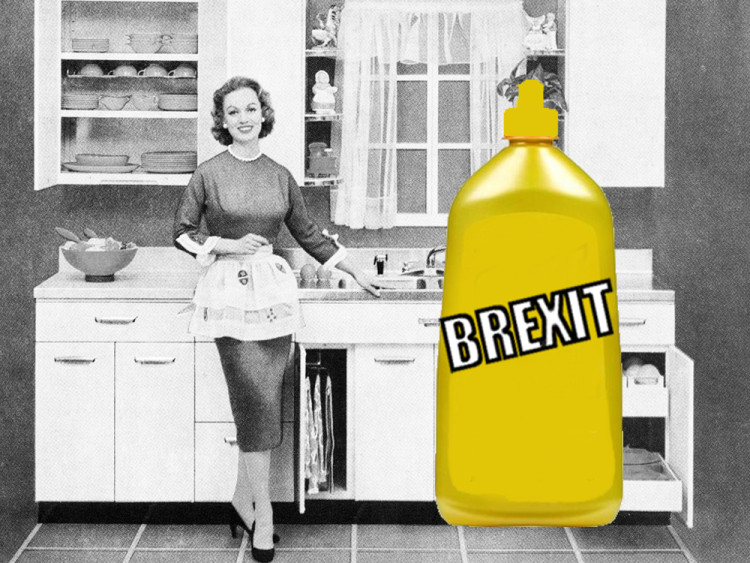“Brexit” – it’s a great brand name. I’d certainly choose it to clean my oven. Wherever you stand on the EU, it’s fair to say that one side of the great divide had the better branding. In fact, as soon as the word started gaining popularity, I did wonder if the name would help swing the eventual vote. Admittedly this hadn’t happened with “Grexit”, but perhaps a little something was lost in translation for the Greeks. (And “Frexit” sounds terrible so the future of the EU is secure for now).
It would be rather insulting to the British people to suggest the deciding factor for such an important vote came down to branding, although it has long been a principle in political advertising that complex ideas gain better traction in a snappy slogan. This was particularly important in the recent referendum, when the choice was between the familiar status quo and uncharted territory. The great unknown needed a great name before it could become a reality. “Leave” on its own wasn’t up to the job.
Political persuasion does differ from commercial campaigns in one interesting respect. In British politics, the greatest gains have been made when political parties move away from their core ideological territory to appeal beyond their usual cohort of supporters. Thatcher reached beyond the true blues to the aspiring working class, who were ready to buy up their council houses. New Labour reached beyond socialist die-hards to convince the mainstream that they were “intensely relaxed about people getting filthy rich”. The rewards were a large majority and a long term in power.
By contrast, commercial campaigns tend to stay true to their core brand territory and most loyal users. Advertising is most efficient when addressing the most likely target audience with the message they are most likely to swallow, in other words, being the most authentic. Which is not to say that brave and bold campaigns designed to change habits and reassess products can’t work. They can and do, but they are harder to pull off.
We can watch the Pepsi Challenge ads, observe the blind tester picking Pepsi, even go and try Pepsi ourselves, before slipping back to the trusted brand values of Coke. Similarly, we can move away from our usual voting pattern as long as the values promised in the election campaign prove authentic in practice.
Which brings us to the brand values of Brexit. We are reliably told by Theresa May that “Brexit means Brexit”. But what does Brexit mean? Practical interpretations remain wide-ranging, from anything to a complete separation from Europe to a blink-and-you-missed-it subtle realignment. Emotional interpretations are equally disparate, from self-inflicted armageddon to a joyful rebirth of a nation. We don’t know what Brexit means for us and so it has no authentic resonance.
For a commercial product, research can be valuable to understand its real appeal to customers, which may not be the aspects marketers predict. Is it the price, the features or the brand image? In the same way, we know over half the country has ‘bought’ Brexit, but we don’t have the stats on its real appeal. Is it immigration, sovereignty or costs? Without knowing that, any future negotiations can’t promise to be delivering the will of the people. Brand authenticity would be lost.
Whether you are selling household goods or a political vision, you need brand values you back you up, to make you believable. The Brexit brand name was a handy moniker to give uncertainty a shape and form, but it’s brand values are still very much up for grabs.
Unlike a new oven cleaner, it will take a little more time before there is a consensus on what it means (although to be honest, I’ve had discussions on brand values that have seemed just as protracted). Just like in a commercial campaign, this government has to build a meaningful brand to believe in, before it can sell it to the people. Marketers and politicians alike neglect brand values at their peril.
